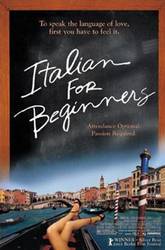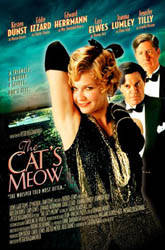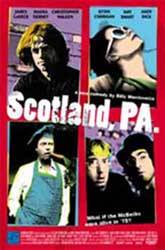 Director: Starring:
OTHER REVIEWS: Innocence The King
Is Alive Mifune Va Savoir |
Italian for Beginners BY: DAVID PERRY The list of introductory Dogme 95 productions -- The Celebration, The King Is Alive, The Idiots, Mifune -- were all efforts at Scandinavian milieu, complete with abusive parents, abusive siblings, and abusive spouses. Even the knock-off films, including American indie julien donkey-boy, were relegated to this down-in-the-dumps cinematic style. For that reason the latest Dogme film Italian for Beginners comes as one of the biggest surprises of the year. This is not some revolutionary moment in filmmaking (though some would comment that the first Dogme film, The Celebration, was), but is notable for the fact that it is not the same doom and gloom Dogme film that art house denizens have seen come around from Denmark's auteurs de rigueur collection. Lone Scherfig chose to make a romantic comedy with the aesthetic rules set by the Dogme founders. In tone, the movie is similar since the cinéma vérité virtues are still clear -- through handheld cameras and natural lighting, the disparages of the characters are a little more highlighted. Scherfig also shows a liking towards close-ups of the characters' faces, which further emphasizes the fact that the problems number as highly as the visible pores on their faces. Ostensibly, Italian for Beginners is light and cuddly, but so much of the feeling comes prearranged by a century of Scandinavian cinema that the rom-com virtues become non-existent in particular moments (would Runaway Bride have made as much money if Julia Roberts struggled under the fist of her masochistic father? Would Pretty Woman have been such a hit if she needed to enact euthanasia on her mentally abusive mother?). Only in the film's finale does the audience truly come to understand that despite the occasional moment of misery, Italian for Beginners is an about-face from the Dogme agony. The film deals with the coupling of six desolate souls in a small Danish town where they share a devotion: the Italian language. Andreas (Berthelsen) has just been brought into town to take over as pastor of the local church after the old pastor (Mejding) lost his religion; Jørgen (Gantzler) is the manager at the hotel Andreas is staying at; Halvfinn (Kaalund) is the aggressive manager of the hotel sports bar and Jørgen's best friend; Olympia (Støvelbæk) is the clumsy attendant at the local bakery shop; Giulia (Jensen) is the Italian waitress at the sports bar with an interest in Jørgen; and Karen (Jørgensen) is a hairdresser who gets many of her customers from the hotel when Jørgen recommends guests to her. When the film begins, Halvfinn and Jørgen, as well as three old ladies, make up the entire student body in the weekly adult education class on conversational Italian -- Halvfinn is already pretty fluent in the language from a pack of Italian soccer players who taught him when they regularly patronized the sports bar, Jørgen is there just to learn the language so he can speak to Giulia. Soon Andreas and Olympia join in an effort to find some companionship through the educational class (and, they find it in each other) and Karen joins when she finds a long unknown bond with Olympia and a kindling love with Halvfinn. By then, the language doesn't even matter anymore. Taking into account the film movement that brought about Italian for Beginners, the film's ending scenes turn out to be some of the biggest modesties of the year. With the self-destruction that has filled much of the Dogme films thus far -- from the ethereal in The Celebration to the sadistic in The Idiots -- the happiness that comes to life in Italian for Beginners must be seen as the biggest departure yet attempted in this already tiresome film wave (despite a slow release schedule in America, Italian for Beginners is actually the 12th Dogme film). Considering the Dogme classification that begins the film, Italian
for Beginners feels unusually strained by its own pretense. If not for the
stipulations that run a Dogme production (and the critical ink brought upon it simply
because of the connection) Italian for Beginners could have easily been made like
the superior Together, which enjoyed the vérité without the pretentiousness.
Lone Scherfig's Dogme entry is better than the entries from founders Lars von Trier and
Kristen Levring. At least it can be said that the film is the first Dogme film that could
have been made in Hollywood. And, with a few alterations, Julia Roberts could star. |



